

Popular Keywords
Total Results
We could not find what you're looking for. Please try again.No Record Found
Webinars Workshops Articles

Need more information?
Contact us, we will answer all your questions!
Critical Thinking Skills
Webinars, Workshops and Articles

In today’s fast-paced workplace, decisions often have to be made quickly, effectively and without doubt. It is increasingly important for employees to be able to think critically on their own. When employees excel at critical thinking, they can assess all possible approaches to a problem and choose the best solution confidently and calmly. Critical thinking skills webinars will help participants think more creatively and independently, make better decisions by problem solving systematically, and better identify the value of ideas and reach well-reasoned conclusions.
What is Critical Thinking?
Critical thinking is a skill that most would agree is important in the workplace. But what is it, exactly ?
Critical thinking is reasonable, reflective thinking that is focused on deciding what to believe and what to do. It requires collecting information and then thoughtfully evaluating it in order to guide decision making (we recommend decision making training ). Critical thinking helps you to make better decisions by engaging in logical reasoning, avoiding mistakes due to bias or inaccurate assumptions, and systematically working through options to identify the most relevant and reasonable solution.
Why is Critical Thinking important?
Executives repeatedly highlight critical thinking skills as a sought-after trait in new hires and current employees. The AMA Critical Skills Survey asked thousands of managers and executives to assess the importance of critical thinking skills. Seventy-two percent agreed that current employees’ success is measured by their critical thinking skills. When asked if their organizations make an effort to assess critical thinking when hiring new employees, seventy-six percent said yes.
Improving Critical Thinking Skills
Critical thinking might be described as the ability to engage in reflective and independent thinking. Some people may be naturally skilled at critical thinking, but everyone can improve. Critical thinkers rigorously question ideas and assumptions rather than accepting them at face value. They will always seek to determine whether the ideas, arguments and findings represent the entire picture and are open to finding that they do not.
Our free Critical Thinking Webinars help strengthen your ability to reason by enforcing the principles of active learning rather than be a passive recipient of information.

Subscribe to HRDQ-U
Sign up to be notified of upcoming live webinars, in-depth workshops, podcasts, blog posts, promotions and much more. Stay ahead of the curve and subscribe for FREE today !

- 827 Lincoln Ave. #B-10 West Chester, PA 19380
- [email protected]
- +1-610-279-2002
- +1-800-633-4533
Webinar: Building Critical Thinking Across the Disciplines
In this free one-hour webinar, Jeremy Szteiter explores practices for library instructors to teach critical thinking.

Originally presented February 28, 2024
In this webinar, Jeremy Szteiter explores practices for library instructors and others in teaching for, and with, critical thinking. He focuses on tools of critical thinking that are relevant across disciplinary areas and support learners to make sense of information in the context of scholarly research and analysis of complex media and online content.
The session includes a brief overview of some perspectives on critical thinking, followed by descriptions of specific tools and examples of use. Participants will leave with a sense of how to integrate these tools into instructional materials along with a list of additional resources.
Click below to experience this webinar as a tutorial. When you continue past the introduction to the webinar, you'll be prompted to log in. We require login to view the whole tutorial so we can provide certificates of completion for your records and for professional development credit. No purchase is required and you can create a Niche Academy account if you don't already have one. The certificate will be available for download when you have completed all sections of the tutorial.

Click the links below for more resources: Building Critical Thinking Across the Disciplines Slides Building Critical Thinking Across the Disciplines Chat Transcript Building Critical Thinking Across the Disciplines Audio Transcript
Get notified of new articles and webinars
Subscribe to our blog and never miss learning and development content that can help you tackle today's most important challenges.

- Contact AIChE
- Communities
- Learning & Careers
- Publications
- Careers at AIChE
- Equity, Diversity, Inclusion
- Young Professionals
- Operating councils
- Local Sections
Other Sites & Tools
Technical groups, follow aiche, critically thinking about critical thinking.
Have you ever examined another person's solution to a problem and found yourself frustrated and asking yourself "What were they thinking?" when you realize that the person's actions actually compounded the problem rather than solving it. Most have, and often it is due to a lack of critical thinking.
In this webinar, the presenters first define the problem and then discuss why critical thinking skills are so important in the workforce. Then they describe the characteristics of critical and non-critical thinkers and what this means to employers who depend on others to make the business successful. The remainder and the bulk of the presentation focuses on how attendees can improve these skills as well as how they can help others do the same. Leaders and individual contributors in technical fields who rely on others to solve problems and make sound decisions will find this presentation useful in their day-to-day dealings with co-workers.
Greg Shaffer
Melissa collins.
Webinar content is available with the kind permission of the author(s) solely for the purpose of furthering AIChE’s & IChemE’s mission to educate, inform and improve the practice of professional chemical engineering. The content reflects the views, opinions, and recommendations of the presenters. AIChE does not warrant or represent, expressly or by implication, the correctness or accuracy of the content of the information presented. All other uses are forbidden without the express consent of the author(s). For permission to re-use, please contact [email protected] . Attendee contact information, including email addresses, will be shared with AIChE and IChemE, with the option to unsubscribe from future communications.
- AIChE Pro Members - Free
- AIChE Graduate Student Members - Free
- AIChE Undergraduate Student Members - Free
- AIChE Explorer Members - $0.00
- Non-Members - $0.00
- Source: AIChE
- Language: English
- Skill Level: Basic
- Duration: 1 hour
Explore More Areas of Advancement

AIChE Practice+ provides learners with opportunities to work on real-world challenges through industry internships and competitions.

With AIChE Career Discovery ® , we'll help you to identify aptitudes and skills you’ll need in order to achieve your full potential at various career stages.

AIChE Credential validates your proficiency with potential employers in areas such as process intensification, safety, sustainability and others.

English Learning

WEBINAR LIBRARY HOW TO INTEGRATE CRITICAL THINKING AT LOWER LEVELS

JOHN HUGHES AUTHOR

OVERVIEW Critical thinking often features in higher level language teaching materials but what is its place in lessons for beginner, elementary and pre-intermediate students? In this webinar, we’ll explore the role of higher level thinking in lower level classes and find out how – even with basic language aims – critical thinking can add motivation, develop student-independence, and improve learning outcomes.
ABOUT THE SPEAKER
John Hughes is a teacher, teacher trainer and course book author. He has worked in ELT since 1992 and managed departments of Business English and Teacher Training. He currently combines a variety of roles including part-time teaching, running online training courses, and lecturing on ELT methodology at Oxford University in the summer. He has written many books with National Geographic Learning including the six-level general English course series called Life and World English Third Edition. He lives near Oxford and is a contributor to the National Geographic Learning In Focus Blog . His website is www.johnhugheselt.com .
Country/Region: NationalGeographic.com Cengage.com
- Digital Offerings
- Biochemistry
- College Success
- Communication
- Electrical Engineering
- Environmental Science
- Mathematics
- Nutrition and Health
- Philosophy and Religion
- Our Mission
- Our Leadership
- Accessibility
- Diversity, Equity, Inclusion
- Learning Science
- Sustainability
- Affordable Solutions
- Curriculum Solutions
- Inclusive Access
- Lab Solutions
- LMS Integration
- Instructor Resources
- iClicker and Your Content
- Badging and Credidation
- Press Release
- Learning Stories Blog
- Discussions
- The Discussion Board
- Webinars on Demand
- Digital Community
- Macmillan Learning Peer Consultants
- Macmillan Learning Digital Blog
- Learning Science Research
- Macmillan Learning Peer Consultant Forum
- The Institute at Macmillan Learning
- Professional Development Blog
- Teaching With Generative AI: A Course for Educators (Start date May 13th, 2024)
- Teaching With Generative AI: A Course for Educators (Start date July 8, 2024)
- Teaching with Generative AI: Course Alumni
- English Community
- Achieve Adopters Forum
- Hub Adopters Group
- Psychology Community
- Psychology Blog
- Talk Psych Blog
- History Community
- History Blog
- Communication Community
- Communication Blog
- College Success Community
- College Success Blog
- Economics Community
- Economics Blog
- Institutional Solutions Community
- Institutional Solutions Blog
- Handbook for iClicker Administrators
- Nutrition Community
- Nutrition Blog
- Lab Solutions Community
- Lab Solutions Blog
- STEM Community
- STEM Achieve Adopters Forum
- Contact Us & FAQs
- Find Your Rep
- Training & Demos
- First Day of Class
- For Booksellers
- International Translation Rights
- Permissions
- Report Piracy
Digital Products
Instructor catalog, our solutions.
- Macmillan Community
- WEBINAR: Promoting Critical Thinking Through Activ...
WEBINAR: Promoting Critical Thinking Through Active Learning

- Subscribe to RSS Feed
- Mark as New
- Mark as Read
- Printer Friendly Page
- Report Inappropriate Content

You must be a registered user to add a comment. If you've already registered, sign in. Otherwise, register and sign in.
- Analytics & Insights 14
- Attendance Tracking & Reporting 10
- Going Virtual 50
- iClicker 143
- iClicker Insights 10
- iClicker Tips & Tricks 1
- Site Licensing 2
- Student Engagement 113
- Survey Services 6
- Tips & Tricks 17
- Trivia Deck 18
- Webinars 63
Free Webinar Series – Success Skills: Critical Thinking
Critical thinking is one of the most important skills in your audit toolkit, description:.
Everyone took a critical thinking class in college, but do you really practice critical thinking and work to improve it on a regular basis? Critical Thinking is a skill that can, and should, be continually improved upon throughout life. There is no finish line, just the potential for ongoing improvement. This session will break down the fundamentals of critical thinking, what gets in the way of critical thinking and steps to improve critical thinking.
Learning Objectives:
- Understanding what critical thinking really is
- Learn to identify what can get in the way of critical thinking
- Learn ways to improve critical thinking
___________________________________________________________________
CPE: 1.0 | Field: Personal Development | Delivery: Group Internet Based Level: Beginner | Prerequisites: None Who Should Attend: New or experienced internal auditors who want to learn or refresh their critical thinking skills
Verracy is registered with the National Association of State Boards of Accountancy (NASBA) as a sponsor of continuing professional education on the National Registry of CPE Sponsors. State boards of accountancy have final authority on the acceptance of individual courses for CPE credit. Complaints regarding registered sponsors may be submitted to the National Registry of CPE Sponsors through its website: www.NASBARegistry.org.
Texas State Board of Public Accountancy, 505 E. Huntland Drive, Suite 380, Austin, Texas 78752 www.tsbpa.state.tx.us
This is a free webinar. You can cancel any time at no charge. To learn about Verracy’s cancellation and refund policy, visit our website.
Experience the Verracy Difference
Sign up today to receive information about our services, including our Free Webinar Series.
- Name * First Last
Join for Free ›
- Career Corner
- Admin of the Month
- Professional News
- ASAP Circle
- Enroll Now →
- Go to My E-Learning Center
- Recertification
- Online Courses + Workshops
- Our Experts
- Partnership Directory
- Advisory Board
- Partnering with ASAP
- Help Center
FREE Weekly Resources
NEW — Admin Month 2024 is here! Learn More › Community Spotlights › -->

Strategic Thinking for Results - Skills for Competent Critical Thinking
Get a Free Membership
Already a member? Log in to access webinar now
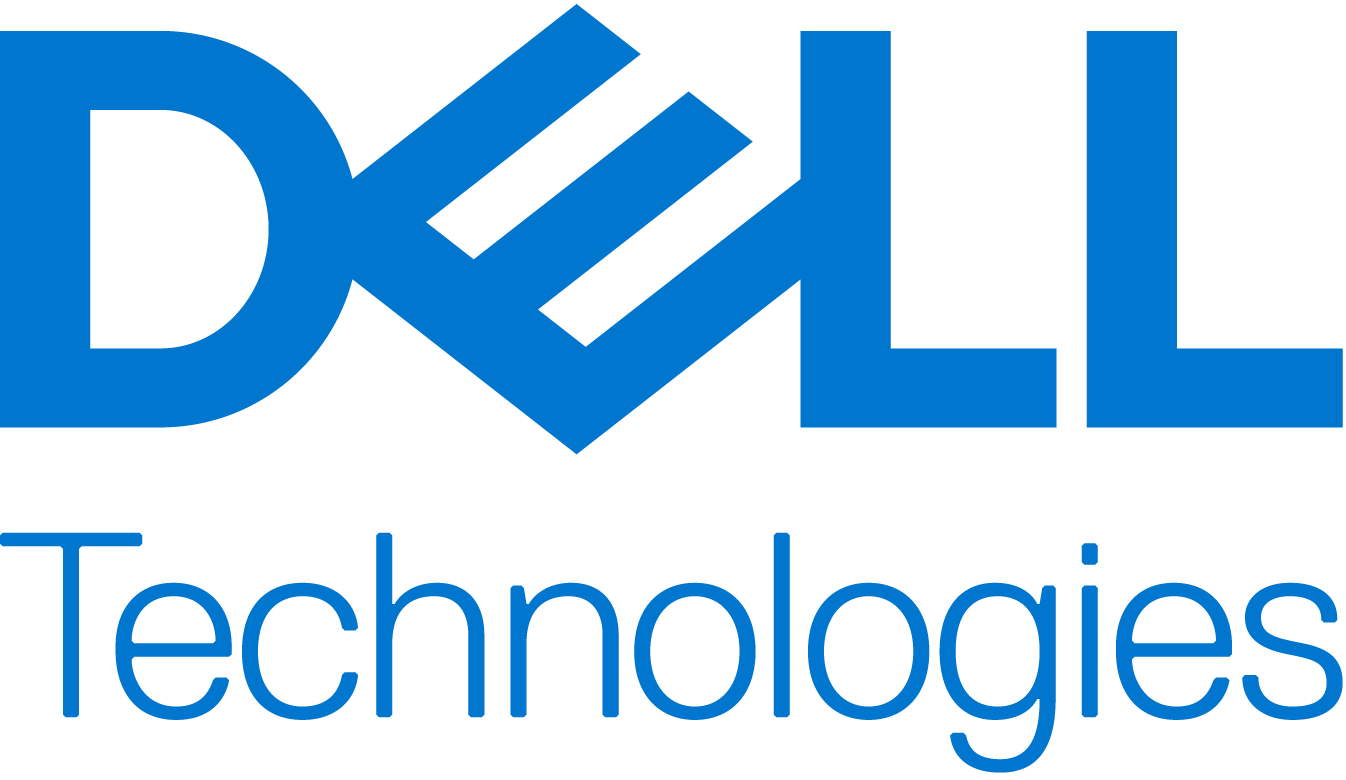
Strategic assistants must think differently. How can we develop a curious and insatiable approach to our work and a quest for continuous learning using creative strategic thinking? Strategic assistants look for connections and patterns and don’t settle for the way it’s always been done. They are empowered to take initiative that sparks growth and better job performance. This session will focus on ways to level-up strategic thinking skills in any situation or when dealing with difficult managers.
What will the attendee walk away with?
- Discover 8 thinking traps and attitudes that can sabotage the strategic mindset
- Recognize the keys to viewing tough situations more creatively
- Learn the value of personal "incubation time"
- Discover the power of systems thinking
Bonus Handout: Skills for Competent Critical Thinking
About Lisa Olsen : Lisa Olsen, MS, CWCA is Co-owner of Admin to Admin, providing professional development training for administrative professionals. She has over 20 years experience as a C-Suite career assistant and administrative manager. Lisa is a keynote and workshop presenter on topics such as strategic communication, leadership, emotional intelligence and resilience, critical thinking, how to level-up, and impression management.
She has her Master's in Organizational Leadership with five years of experience teaching at the junior college level. Her presentations focus on relevant and timely topics for assistants of all levels. Lisa's goal is get the attendees thinking about their roles in new and different ways without falling into complacency.
March 17, 2023
Join the conversation.
Welcome to the ASAP Circle, a community platform for peer-to-peer conversation on trending topics, professional challenges, and shared experiences. We even have designated spaces for weekly Tuesday Coffee Breaks.
Start Connecting Today!
Explore More
- Communication
- Efficiency & Skills
- Professional Development
Webinar FAQ's
What online training is included with asap membership , you must be a free or professional member to attend webinars . certain webinars are exclusive to professional members ($199/year). courses and workshops are not included with membership. learn more about the differences between webinars, courses, and workshops here . , how do i access my webinar, course, or workshop, live sessions: you’ll receive a confirmation email from on24, but your order confirmation email and order history > order details will have a direct link to join as well. | on-demand: the post-checkout screen, your order confirmation email, and order history > order details will have links to the on-demand materials., will i get a recording and certificate , yes both the recording and certificate can be found under order history > order details . for live sessions, please wait 1 to 3 business days after the live session for these materials to be uploaded (you’ll receive them via email as well). if you can’t attend the live session, you will still receive the recording..
Read more FAQs here .
Join ASAP for Free ›
Advertise with us ›
How Professional Development Fuels Career Advancement for Admins
Problem solving in the workplace: how to strengthen that muscle.
Get your free
ASAP Newsletter
Discover the
ASAP Advantage
American Society of Administrative Professionals
Producer of
- Help & FAQs
- Sponsorships
- Terms & Conditions
- Administrative Professionals Conference
- PACE Certification
- Career Center
- Privacy Policy
- DSAR Requests / Do Not Sell My Personal Info
- Terms of Use
- Events, Products, & Services
- TMLC Support
- Training Calendar
Sep 05, 2024 • 3:30PM ET
Interested in the science of neuroplasticity and its implications for teaching and learning? In this webinar, we discuss how educators can harness the brain’s natural preferences to accelerate learning and maximize retention, recall and deep understanding.
The Building Blocks of Brain-Based Learning: The Research Base for Thinking Maps
Sep 18, 2024 • 3:30PM ET
Social-emotional learning is essential for self-regulation, classroom management and optimal learning. In this 15-minute webinar, you'll learn how Thinking Maps supports SEL by making thinking, decision-making, goal setting and conflict resolution visible.
Making Social-Emotional Learning Visible: SEL Strategies for Positive Classroom Engagement
Oct 02, 2024 • 3:30PM ET
Do you want to help English Learners (ELs) access grade-level content and accelerate language development? In this webinar, you’ll learn how Thinking Maps can be differentiated to support English Learners at all levels of language proficiency.
Path to Proficiency: Differentiating the Maps for English Learners
Oct 23, 2024 • 3:30PM ET
Do you want to improve writing at your school? This webinar introduces our comprehensive and flexible instructional framework that can be used as a core writing program or in combination with other writing resources.
Write from the Beginning... and Beyond: Building the Foundations of Effective Writing
Oct 31, 2024 • 3:30PM ET
Many students believe they’re “just not good at math” – but what they really mean is they don’t know where to start. Join our 15-minute webinar to learn how to lower the cognitive load of math and nurture the mathematical thinking that allows students to become flexible...
Building a Deep Structure for Mathematical Thinking
Many students believe they’re “just not good at math” – but what they really mean is they don’t know where to start. Join our 15-minute webinar to learn how to lower the cognitive load of math and nurture the mathematical thinking that allows students to become flexible problem solvers.
Nov 18, 2024 • 3:30PM ET
Science is more than just a content area–it’s a way of thinking about and engaging with the world. This 15-minute webinar shows you how a visual language for learning helps students grasp scientific concepts and think like a scientist.
Building a Deep Structure for Scientific Thinking
Dec 04, 2024 • 3:30 PM ET
How do you accelerate learning for ALL students? By focusing on the thinking. Our 15-minute webinar will show you how you can help students activate cognitive processes and take ownership of their learning.
Thinking Maps: Building a Language for Learning
What's the best way to unlock every student’s learning potential? By focusing on thinking first. Students with a deep structure for critical thinking are better prepared to recover from learning disruptions and accelerate mastery of grade-level standards.
Building a Deep Structure for Critical Thinking
Good writing starts with clear thinking. When students know how to organize their ideas and structure their writing for any task, they free up more cognitive space to engage with complex ideas and focus on elements of writing such as audience, style and creative expression. Learn...
Building a Deep Structure for Writing
Good writing starts with clear thinking. When students know how to organize their ideas and structure their writing for any task, they free up more cognitive space to engage with complex ideas and focus on elements of writing such as audience, style and creative expression. Learn how deep cognitive structures support the writing process.
Questioning is a vital component of critical thinking–and of learning. Find out how teaching students to ask the right kinds of questions helps students go beyond surface-level thinking to deep comprehension and reasoning.
What a Great Question: How Asking Better Questions Leads to Better Thinking
Reading comprehension is a critical foundation for success across all content areas—but many students struggle to extract meaning from complex content. Find out why reading comprehension is so difficult and what teachers can do to help students reduce the barriers to reading su...
Building a Deep Structure for Reading Comprehension
Reading comprehension is a critical foundation for success across all content areas—but many students struggle to extract meaning from complex content. Find out why reading comprehension is so difficult and what teachers can do to help students reduce the barriers to reading success.
Is it time to get back to the basics and refresh your Thinking Maps practice? If you've gotten away from Thinking Maps and want to get restarted or just want to see what's new since your initial training, this 15-minute webinar is for you!
Re-Thinking Thinking Maps: Strategies to Reboot Your School
So you’ve implemented Thinking Maps–now what? This 15-minute webinar will give you ideas for building a sustainable Thinking Maps practice and helping everyone get more from the Maps.
Getting More out of Thinking Maps: Creating Sustainable Whole-School Change
Whether you’re just getting started with Map Builder or looking for new ways to put it to use in your classroom, this webinar is for you! In 30 minutes, we’ll show you what’s new in Map Builder and how to get started with the most commonly used features.
Map Builder: Tools and Tips
What are the best uses of technology for teaching and learning? In this 15-minute webinar, we’ll explore models for technology integration and how Map Builder fits into a blended learning model.
From Consumer to Creator: Thinking Maps in a Blended Learning Model
Learning Forward updated their Standards for Professional Learning in 2022. Join us for this 15-minute webinar to learn what’s new, what stays the same, and what the implications are for schools.
The New Learning Forward Standards: Rethinking PD for K-12 Schools
If you have additional questions, email [email protected] for more information.
LOGIN
Annual Report
- Board of Directors
- Nomination Process
- Organizational Structure
- ATS Policies
- ATS Website
- MyATS Tutorial
- ATS Experts
- Press Releases
Member Newsletters
- ATS in the News
- ATS Conference News
- Embargo Policy
ATS Social Media
Breathe easy podcasts, ethics & coi, health equity, industry resources.
- Value of Collaboration
- Corporate Members
- Advertising Opportunities
- Clinical Trials
- Financial Disclosure
In Memoriam
Global health.
- International Trainee Scholarships (ITS)
- MECOR Program
- Forum of International Respiratory Societies (FIRS)
- 2019 Latin American Critical Care Conference
Peer Organizations
Careers at ats, affordable care act, ats comments and testimony, forum of international respiratory societies, tobacco control, tuberculosis, washington letter, clinical resources.
- ATS Quick Hits
- Asthma Center
Best of ATS Video Lecture Series
- Coronavirus
- Critical Care
- Disaster Related Resources
- Disease Related Resources
- Resources for Patients
- Resources for Practices
- Vaccine Resource Center
Career Development
- Resident & Medical Students
- Junior Faculty
- Training Program Directors
- ATS Reading List
- ATS Scholarships
- ATS Virtual Network
ATS Podcasts
Ats webinars, professional accreditation, pulmonary function testing (pft), calendar of events, patient resources.
- Asthma Today
- Breathing in America
- Fact Sheets: A-Z
- Fact Sheets: Topic Specific
- Patient Videos
- Other Patient Resources
Lung Disease Week
Public advisory roundtable.
- PAR Publications
- PAR at the ATS Conference

Assemblies & Sections
- Abstract Scholarships
- ATS Mentoring Programs
- ATS Official Documents
- ATS Interest Groups
- Genetics and Genomics
- Medical Education
- Terrorism and Inhalation Disasters
- Allergy, Immunology & Inflammation
- Behavioral Science and Health Services Research
- Clinical Problems
- Environmental, Occupational & Population Health
- Pulmonary Circulation
- Pulmonary Infections and Tuberculosis
- Pulmonary Rehabilitation
- Respiratory Cell & Molecular Biology
- Respiratory Structure & Function
- Sleep & Respiratory Neurobiology
- Thoracic Oncology
- Joint ATS/CHEST Clinical Practice Committee
- Clinicians Advisory
- Council of Chapter Representatives
- Documents Development and Implementation
- Drug/Device Discovery and Development
- Environmental Health Policy
- Ethics and Conflict of Interest
- Health Equity and Diversity Committee
- Health Policy
- International Conference Committee
- International Health
- Members In Transition and Training
- View more...
- Membership Benefits
- Categories & Fees
- Special Membership Programs
- Renew Your Membership
- Update Your Profile
- ATS DocMatter Community
- Respiratory Medicine Book Series
- Elizabeth A. Rich, MD Award
- Member Directory
- ATS Career Center
- Welcome Trainees
- ATS Wellness
- Thoracic Society Chapters
- Chapter Publications
- CME Sponsorship
Corporate Membership
- Assemblies and Sections
Webinar Date: March 7, 2023
This webinar is focused on providing our perspective on the importance of macro cognition and team cognition in the decision-making process in healthcare settings, most notably the intensive care unit (ICU). The webinar includes live presentations by experts in the field followed by an interactive session from attendees. This webinar features renowned experts: Abdullah Alismail, PhD, RRT, FCCP, FAARC Associate Professor of Cardiopulmonary Sciences & Medicine Department of Cardiopulmonary Sciences, School of Allied Health Professions, Loma Linda University Health, Loma Linda, CA Lauren Blackwell, MD Assistant Professor of Medicine Division of Pulmonary, Critical Care, and Sleep Medicine, Icahn School of Medicine, Mount Sinai Beth Israel, New York, NY Sugeet K. Jagpal, MD Assistant Professor Division of Pulmonary, Critical Care and Sleep Medicine, Rutgers Robert Wood Johnson Medical School, New Brunswick, NJ May Lee, MD, ATSF, FCCP, FACP Clinical Associate Professor of Medicine Director, Pulmonary and Critical Care Fellowship Program Keck Medical Center of USC, Division of Pulmonary and Critical Care, Los Angeles, CA Erica Lin, MD Assistant Professor Division of Pulmonary, Critical Care and Sleep Medicine, University of California San Diego, La Jolla, CA
Jared Chiarchiaro, MD MS Associate Professor of Medicine Clinical Chief, Division of Pulmonary, Allergy, & Critical Care Medicine Oregon Health & Science University, Portland, OR
Nayla Ahmed, M.B.B.S Pulmonary & Critical Care medicine fellow at Mayo Clinic We invite your participation in this session and look forward to an insightful discussion. If you have questions about this session or have suggestions for future sessions, please contact: Avraham Cooper ATS Section on Medical Education [email protected]

The American Thoracic Society improves global health by advancing research, patient care, and public health in pulmonary disease, critical illness, and sleep disorders. Founded in 1905 to combat TB, the ATS has grown to tackle asthma, COPD, lung cancer, sepsis, acute respiratory distress, and sleep apnea, among other diseases.
AMERICAN THORACIC SOCIETY 25 Broadway New York, NY 10004 United States of America Phone: +1 (212) 315-8600 Fax: +1 (212) 315-6498 Email: [email protected]
Privacy Statement | Term of Use | COI Conference Code of Conduct

- Free Webinars
Free Back to School Webinar: Award Winning Products, Free Give Away & Free Teaching Tool
Aug. 29, 2024 | 9 AM Pacific
- Livestream Events
- On Demand Courses
Free Webinars Taught by Social Thinking Experts
Our free webinars are taught by Social Thinking experts, covering core concepts in social, emotional, and academic learning (SEAL). Each dynamic 90-minute training webinar explores practical ideas, strategies & tools for supporting social learners across a variety of SEAL topics, including stress management, social anxiety, executive functioning, social observation, self-regulation, and more.
Webinar instructors include Social Thinking® founder, Michelle Garcia Winner, MA, CCC-SLP, and other members of the Social Thinking Training & Speakers’ Collaborative. Dr. Pamela Crooke, PhD, CCC-SLP, and co-developer of the Social Thinking® Methodology, moderates the informative Q&A sessions following each presentation. In addition to participating in powerful free learning, webinar attendees earn a Certificate of Completion. (CE credit is not provided for free webinars.)
Learn Essential Social Thinking Concepts for Free

Back-to-School Webinar: Award-Winning Products, Free Giveaway and Free Teaching Tool
We still believe in the power of free! In fact, we are hosting a free 60-minute webinar where attendees will get a chance to win new and award-winning products, and we’re also including a free teaching tool! Three for the price of free.

Social Detective - Thinking to Start the School Year
Explore the world of social observation and learn how it lays the foundation for better interpersonal relationships and academic learning. Understanding what it means to be a Social Detective (social observer), especially during the start of a new school year, is crucial to navigating change, academic learning, making friends & more. In this free webinar, we’ll explore the highly accessible and easy-to-embed You Are a Social Detective! Curriculum & Teaching Guide . You’ll watch a curriculum lesson taught by a mainstream third-grade teacher, peruse curriculum-generated student work, and discover innovative ways to adapt these social learning concepts for the secondary grades.
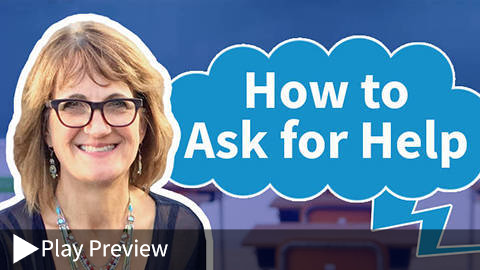
How to Ask for Help
It’s human nature to want to help others, but it’s often difficult for people to ask for help, especially those with social emotional learning differences. In this webinar, we’ll discuss why children, students, and adults may resist help or refuse to ask for it and we’ll deconstruct the multi-step process through which we ask for help. We’ll also explore the social emotional benefits for all participating in this unique and rewarding relationship.

Perspective Taking in the Classroom
Perspective taking can happen anytime at school—during academic learning time, in the hallways, playground or lunchroom. In this free webinar you will learn about perspective taking in the classroom—supporting students to attend to and interpret their own and others’ thoughts and feelings, whether simply sharing space, interacting, or deciding if and how to participate.
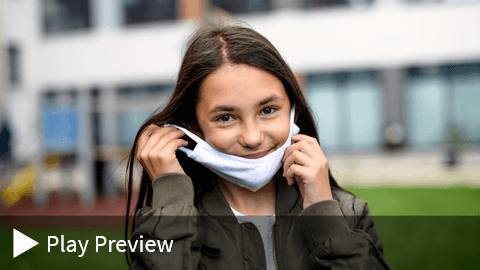
Face-to-Face communication is a thing again! Wait, how do we teach that?
Learn how to teach the dynamics of face-to-face communication, a crucial part of the social emotional experience—and now a source of anxiety and stress for many! In this free webinar, we’ll provide many examples of teaching frameworks and Social Thinking® Vocabulary to encourage the development of metacognitive awareness and practical strategies for use in the classroom and home.
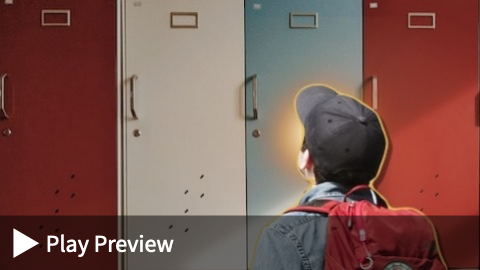
Exploring Our Children’s Stress
Chronic stress and anxiety can impact children’s ability to focus and learn, whether it’s in the classroom or through an online education portal. Helping children metacognitively explore their stress is the first step toward their self-regulation, and this metacognitive understanding also helps interventionists (parents and professionals) learn how to avoid creating even more stressors for children. In this webinar, Michelle Garcia Winner guides parents and professionals in creating structured empathetic discussions with their children and/or students through the use of visual supports and tips.

Demystifying Executive Functions
Many students who are academically strong struggle with executive functioning, which can deeply impact their well-being in the social, academic, and job worlds. Join our founder, Michelle Garcia Winner, for this free webinar to break down executive functions and learn how to teach them.
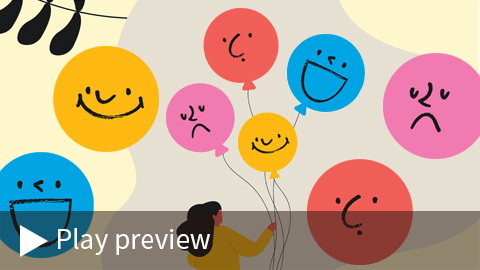
Understanding Self-Regulation
There is a big difference between using reward systems to encourage students to behave and teaching students how to self-regulate. Join Michelle Garcia Winner, the founder of the Social Thinking Methodology, to explore the many moving parts of self-regulation and which of our strategies, frameworks, and teaching materials help students develop these competencies across age groups.
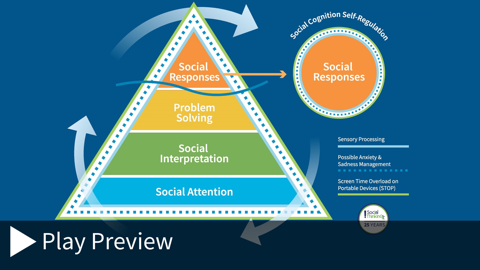
The Social Thinking - Social Competency Model
In this webinar, Michelle Garcia Winner, the founder of Social Thinking, discusses an evidence-informed Social Thinking - Social Competency Model. This model is a way to think about a four-step developmental process to help educators and therapists better support their students and clients.
- Inservice Information Request Form
- The State of Critical Thinking Today
- Higher Education
- K-12 Instruction
- Customized Webinars and Online Courses for Faculty
- Business & Professional Groups
- The Center for Critical Thinking Community Online
- Certification in the Paul-Elder Approach to Critical Thinking
- Certification Online Course
- Professional Development Model - College and University
- Professional Development Model for K-12
- Workshop Descriptions
- Online Courses in Critical Thinking
- Critical Thinking Training for Law Enforcement
- Consulting for Leaders and Key Personnel at Your Organization
- Critical Thinking Therapy
Translate this page from English...
*Machine translated pages not guaranteed for accuracy. Click Here for our professional translations.

Fall 2024 Online Courses
Courses Count Toward Certification in Our Approach
Section Links . . .
Important Deadlines:
• Read Here
Course Offerings:
• CT700 - How to Infuse Critical Thinking Into Your Instruction
• CT800 - Critical Thinking: Tools for Taking Charge of You Learning and Your Life
• CT701 - How to Infuse Critical Thinking Into Instruction, Part II: Advanced Course
General Information:
• How the Courses Work
• Our Instructors
• Testimonials
Important Deadlines
August 19, 2024: Last day to drop with a full registration refund.
August 20, 2024: Instruction begins.
September 1, 2024: Last day to register .
October 15, 2024: Last day to drop with a prorated registration refund ($25 minimum refund deduction once the course begins).
December 10, 2024: Semester ends.
Course Offerings
Ct700 - how to infuse critical thinking into your instruction.
Registration Closed

This course introduces a substantive conception of critical thinking and how to infuse this concept throughout your instruction. It fosters understanding of how to teach critical thinking skills to students through any subject or discipline, and at any level of instruction. In this course, you will be introduced to the elements of reasoning, universal intellectual standards, and intellectual traits through readings, discussions, and practical application activities. You will redesign lessons and strategies using the concepts and principles of critical thinking. You will practice strategies for Socratic discussions. You will help students learn to consciously use critical thinking concepts and strategies in learning, and in their lives. You will redesign and teach lessons you develop for your own classes - and receive course credit for doing so!
As you apply your mind in this course, you can expect to:
- deepen your understanding of the foundations of critical thinking;

- develop skills and abilities in placing fairminded critical thinking at the heart of teaching and learning, including explicitly emphasizing the development of Intellectual Virtues among your students;
- design instruction that fosters explicit critical thinking throughout your course(s);
- help your students learn the tools they need for developing as ethical critical thinkers;
- come to understand the role that native pathologies of human thought play in impeding intellectual development;
- explicitly use the Elements of Reasoning and Intellectual Standards to create critical thinking lessons in your subject area(s);
- help students cultivate their ability to think within key concepts in your subject(s) and discipline(s); and
- create lessons and assessment processes that dovetail with fostering critical thinking at every moment of teaching and learning.
CT800 - Critical Thinking: Tools for Taking Charge of Your Learning and Your Life
Since few people realize the powerful role that thinking plays in their lives, few gain significant command of it. Most people are frequently victims of their thinking; that is, they are hurt rather than helped by it. Most people are their own worst enemies. Their thinking is a continual source of problems, preventing them from recognizing opportunities, keeping them from exerting energy where it will do the most good, poisoning relationships, and leading them down blind alleys.
This course will introduce you to the tools the best thinkers use and will exemplify the activities and practices you can use to begin emulating them. Here are some of the qualities of the best thinkers:
- The best thinkers think about their thinking. They do not take thinking for granted. They do not trust to fate to make them good in thinking. They notice their thinking. They reflect on their thinking. They act upon their thinking.
- The best thinkers are highly purposeful. They do not simply act. They know why they act. They know what they are about. They have clear goals and clear priorities. They continually check their activities for alignment with their goals.

- The best thinkers distinguish their thoughts from their feelings and desires. They know that wanting something to be so does not make it so. They know that one can be unjustifiably angry, afraid, or insecure. They do not let unexamined emotions determine their decisions. They have “discovered” their minds, and they examine the way their minds operate as a result. They take deliberate charge of those operations.
- The best thinkers routinely take thinking apart. They “analyze” thinking. They do not trust the mind to analyze itself automatically. They realize that analyzing thinking is an art one must consciously learn. They realize that it takes knowledge of the parts of thinking, and practice in exercising control over them.
- The best thinkers routinely evaluate thinking, determining its strengths and weaknesses. They do not trust the mind to evaluate itself automatically. They realize that the automatic ways in which the mind evaluates itself are inherently flawed. They realize that evaluating thinking is an art one must consciously learn. They realize that it takes knowledge of the universal standards for thinking, and practice in exercising control over them.
This course, as a whole, will introduce you to the tools of mind that will help you reason well through the problems and issues you face - whether in the classroom, in your personal life, or in your professional life. If you take these ideas seriously, and practice using them, you can take command of the thinking that ultimately will command the quality of your life.
- understand what critical thinking is, how it differs from other forms of human thought, and its foundational principles and concepts;
- become explicitly aware of the barriers to critical thinking development (egocentricity and sociocentricity), as well as how to recognize and overcome their many manifestations in daily life;
- analyze thinking by breaking it down into its fundamental components (the Elements of Thought), and learn how those components work together in reasoning;

- develop Intellectual Virtues, or desirable traits of mind, through practice over time;
- formulate clear, important, relevant questions;
- differentiate between questions of fact, of preference, and of reasoned judgment, and understand the best approaches to take for each of those categories;
- read critically and writing substantively;
- recognize the problem of media bias and propaganda as barriers to critical thought in individuals and human societies;
- develop a clear framework for ethical reasoning and understand how it differs from other modes of thought, such as religious, ideological, political, and legal thinking;
- learn the importance of fairminded critical thinking in self-actualization and the cultivation of fairminded critical homes, workplaces, classrooms, and societies; and
- understand the stages of critical thinking development, as well as determine your current such stage and what is required to ascend to higher stages.
CT701 - How to Infuse Critical Thinking Into Instruction, Part II: Advanced Course

- Developing effective strategies for fostering fairminded critical thinking in instruction.
- Leading more advanced Socratic dialog.
- Deepening your understanding of the foundations of critical thinking.

- Beginning to outline a Thinker's Guide to Critical Thinking within your field of study (showing proficiency in understanding the relationship between critical thinking and your field of study).
- Understanding more deeply the concepts of close reading and substantive writing, in order to better foster these understandings in student thought.
- Placing the concept of fairminded critical thinking at the heart of teaching and learning, including an explicit emphasis on the development of Intellectual Virtues.
- Understanding the roles played by native human pathologies of thought in impeding intellectual development.
- Redesigning lessons with critical thinking at the heart of teaching and learning processes.
- Designing instructional assessment processes that dovetail with fostering critical thinking at every moment in teaching and learning.
General Information
How the courses work, course format and platform, organization of the courses, live meetings, types of assignments, how to begin, how to submit assignments.
Assignments are submitted through the Center for Critical Thinking Community Online , either through the activities' 'Share' function or by posting to a private course forum.
Course Length
Weekly workload.
The assignments, if done well, will take an average of 3-4 hours per week for most participants.
If You Fall Behind
If cannot complete a module's assignments in time, please notify the instructor at your soonest availability. As long as you stay in communication, our instructors will accommodate your need for additional time as best they can.
Course Instructors
Each course is facilitated by an instructor educated in the Paul-Elder conception of critical thinking, under the direction of the Foundation's Senior Fellows. In recent years, some courses have been instructed by Dr. Paul Bankes , while others have been instructed by Dr. Brian Barnes .
Our registration fee covers the cost of tuition and all course materials. This fee is $942.
Certificates of Completion
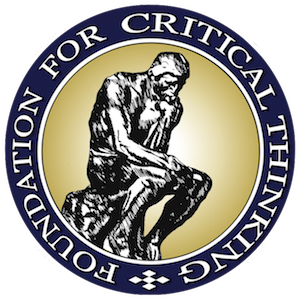
All course materials (reading, videos, etc.) are provided digitally online.
Withdrawing from a Course
Please see the ' Important Deadlines ' section at the top of this page.
Our Instructors

Testimonials
- 'I told my boss this week during a faculty meeting that this has been the best [higher education] course I've ever taken.'
- 'The instruction and course content was phenomenal. . . . this course has added significant value to my life.'
- 'I have really enjoyed this course. . . meetings were engaging and very informative. I plan to attend additional offerings this academic year.'

- "I would like to express my deepest appreciation to you [Dr. Linda Elder] and Richard Paul. You both created a system for life guidance through your very arduous work on critical thinking. Thank you for adding the intellectual virtues to critical thinking. Critical thinking without the intellectual virtues is still narrow-minded thinking. Thanks to [instructor] Paul Bankes [CT700], we could get familiar with fairminded critical thinking this semester in the class. Since I have also attended a couple of courses in psychology, I could better understand what majestic guidance you have created to help us have better lives by improving our way of thinking. I just wanted to say "THANK YOU" for each second you have devoted in this way. I will try to internalize fairminded critical thinking in my life and help to develop this idea as much as I possibly can. I hope one day I can claim that I am from the community of Fairminded Critical Thinking."
- "I would like to extend my sincere gratitude for allowing me to complete the CT700 Course. It has been the most humbling and enlightening experience of my academic life. . . . I will now embark on my vision to make a difference in the South African Education System. Once, again, my gratitude goes out to you . . . "
- "CT700 was an excellent course that changed my thinking and life. It was painful at times and I found it took time for me to meaningfully complete the assignments. As I worked through the first few weeks, I also wondered if I would be able to change my thinking process. By the end of the course, I grew personally and professionally in ways that I wasn’t sure were possible."
College of Continuing & Professional Studies
- Request Info
- Search Undergraduate Programs
- Construction Management Bachelor's Degree
- Construction Management Minor
- Construction Management Certificate
- Health and Wellbeing Sciences Bachelor's Degree
- Health Services Management Bachelor's Degree
- Health Services Management Minor
- Health Services Management Certificate
- Inter-College Program Bachelor's Degree
- Long Term Care Management Minor
- Long Term Care Certificate
- Multidisciplinary Studies Bachelor's Degree
- Applied Business Certificate
- Information Technology Infrastructure Bachelor's Degree
- Information Technology Infrastructure Minor
- Information Technology Infrastructure Certificate
- Current CCAPS Undergrads
- Nonadmitted Guest Students
- Search Graduate Programs
- Addictions Counseling
- Applied Sciences Leadership
- Arts and Cultural Leadership
- Biological Sciences
- Civic Engagement
- Horticulture
- Integrated Behavioral Health
- Sexual Health
- Human Sexuality
- Leadership for Science Professionals
- Regulatory Affairs for Food Professionals
- Sex Therapy
- Transgender and Gender Diverse Health
- Inclusivity
- Applied Sciences Leadership Programs
- Counseling Programs
- Sexual Health Programs
- Current Graduate Students
- Professional Development Programs
- Search Courses and Certificates
- Agile and Scrum
- Business Process
- HR and Talent Development
- Project Management
- Writing and Communications
- Upcoming Webinars
- Webinar Archive Search
- Annual Concrete Conference
- Annual Institute for Building Officials
- Minnesota Power Systems Conference
- Minnesota Water Resources Conference
- Structural Engineering Webinar Series
- Resources for Professionals in Transition
- Discounts and Financial Aid
- Workforce Development
- Lifelong Learning
- Intensive English Program
- Academic English Program
- Supporting Multilingual Students
- Student Resources
- Student English Language Support
- Professional English
- Customized Training
- ESL Testing
- College in the Schools Home
- Students & Families
- Instructors & Counselors
- Administrators
- Faculty & Departments
- Post-Secondary Enrollment Options
- Mission and Values
- Student Stories
- Leadership Team
- Diversity, Equity, and Inclusion
- Jobs at CCAPS
Effective Business Storytelling
Stories are memorable. Human beings are natural storytellers, and stories are powerful tools for increasing retention and engagement. Anyone can harness the power of storytelling to captivate others during times of change, renewal, and even crisis.
This webinar covered:
- the components of a great story.
- how to find impactful stories to use.
- how to tie your story to your initiative or call to action.
- how to keep your stories concise and compelling.
Webinar presenter Jim Hoar recently retired after 31 years of service with Target Company, where he held many roles, most recently as senior consultant on Target’s Executive Development team. Jim’s teaching and research interests include strategy development, influence and influence tactics, and leading transformational change.
Presented on August 14, 2024.
Related Courses

Critical Thinking and Problem Solving
- Sept. 19-20, 2024 | Online
- Jan. 28-29, 2025 | Online
- June 12-13, 2025 | Online

Storytelling for Influence
- Sept. 26-27, 2024 | Online
- April 9-10, 2025 | Online
- You are here:
- American Chemical Society
- Discover Chemistry
- Science Releases
Peering into the mind of artificial intelligence to make better antibiotics
FOR IMMEDIATE RELEASE
DENVER, Aug. 18, 2024 — Artificial intelligence (AI) has exploded in popularity. It powers models that help us drive vehicles, proofread emails and even design new molecules for medications. But just like a human, it’s hard to read AI’s mind. Explainable AI (XAI), a subset of the technology, could help us do just that by justifying a model’s decisions. And now, researchers are using XAI to not only scrutinize predictive AI models more closely, but also to peer deeper into the field of chemistry.
The researchers will present their results at the fall meeting of the American Chemical Society (ACS). ACS Fall 2024 is a hybrid meeting being held virtually and in person Aug. 18-22; it features about 10,000 presentations on a range of science topics.
Youtube ID: yzkZuVY-TSg
Watch a short Q&A video about this research.
AI’s vast number of uses has made it almost ubiquitous in today’s technological landscape. However, many AI models are black boxes, meaning it’s not clear exactly what steps are taken to produce a result. And when that result is something like a potential drug molecule, not understanding the steps might stir up skepticism with scientists and the public alike. “As scientists, we like justification,” explains Rebecca Davis, a chemistry professor at the University of Manitoba. “If we can come up with models that help provide some insight into how AI makes its decisions, it could potentially make scientists more comfortable with these methodologies.”
One way to provide that justification is with XAI. These machine learning algorithms can help us see behind the scenes of AI decision making. Though XAI can be applied in a variety of contexts, Davis’ research focuses on applying it to AI models for drug discovery, such as those used to predict new antibiotic candidates. Considering that thousands of candidate molecules can be screened and rejected to approve just one new drug — and antibiotic resistance is a continuous threat to the efficacy of existing drugs — accurate and efficient prediction models are critical. “I want to use XAI to better understand what information we need to teach computers chemistry,” says Hunter Sturm, a graduate student in chemistry in Davis’ lab who’s presenting the work at the meeting.

The researchers started their work by feeding databases of known drug molecules into an AI model that would predict whether a compound would have a biological effect. Then, they used an XAI model developed by collaborator Pascal Friederich at Germany’s Karlsruhe Institute of Technology to examine the specific parts of the drug molecules that led to the model’s prediction. This helped explain why a particular molecule had activity or not, according to the model, and that helped Davis and Sturm understand what an AI model might deem important and how it creates categories once it has examined many different compounds.
The researchers realized that XAI can see things that humans might have missed; it can consider far more variables and data points at once than a human brain. For example, when screening a set of penicillin molecules, the XAI found something interesting. “Many chemists think of penicillin’s core as the critical site for antibiotic activity,” says Davis. “But that’s not what the XAI saw.” Instead, it identified structures attached to that core as the critical factor in its classification, not the core itself. “This might be why some penicillin derivatives with that core show poor biological activity,” explains Davis.
In addition to identifying important molecular structures, the researchers hope to use XAI to improve predictive AI models. “XAI shows us what computer algorithms define as important for antibiotic activity,” explains Sturm. “We can then use this information to train an AI model on what it’s supposed to be looking for,” Davis adds.
Next, the team will partner with a microbiology lab to synthesize and test some of the compounds the improved AI models predict would work as antibiotics. Ultimately, they hope XAI will help chemists create better, or perhaps entirely different, antibiotic compounds, which could help stem the tide of antibiotic-resistant pathogens.
“AI causes a lot of distrust and uncertainty in people. But if we can ask AI to explain what it’s doing, there’s a greater likelihood that this technology will be accepted,” says Davis.
Sturm adds that he thinks AI applications in chemistry and drug discovery represent the future of the field. “Someone needs to lay the foundation. That’s what I hope I’m doing.”
The research was funded by the University of Manitoba, the Canadian Institutes of Health Research and the Digital Research Alliance of Canada.
Visit the ACS Fall 2024 program to learn more about this presentation, “Using Explainable Artificial Intelligence to explore the relationship between structure and activity,” and other science presentations.
The American Chemical Society (ACS) is a nonprofit organization chartered by the U.S. Congress. ACS’ mission is to advance the broader chemistry enterprise and its practitioners for the benefit of Earth and all its people. The Society is a global leader in promoting excellence in science education and providing access to chemistry-related information and research through its multiple research solutions, peer-reviewed journals, scientific conferences, eBooks and weekly news periodical Chemical & Engineering News . ACS journals are among the most cited, most trusted and most read within the scientific literature; however, ACS itself does not conduct chemical research. As a leader in scientific information solutions, its CAS division partners with global innovators to accelerate breakthroughs by curating, connecting and analyzing the world’s scientific knowledge. ACS’ main offices are in Washington, D.C., and Columbus, Ohio.
To automatically receive press releases from the American Chemical Society, contact newsroom@acs.org .
Note to journalists: Please report that this research was presented at a meeting of the American Chemical Society. ACS does not conduct research, but publishes and publicizes peer-reviewed scientific studies.
Media Contact
ACS Newsroom newsroom@acs.org
Read this release in Spanish (PDF)
Related Content

More From This Series

Accept & Close The ACS takes your privacy seriously as it relates to cookies. We use cookies to remember users, better understand ways to serve them, improve our value proposition, and optimize their experience. Learn more about managing your cookies at Cookies Policy .
1155 Sixteenth Street, NW, Washington, DC 20036, USA | service@acs.org | 1-800-333-9511 (US and Canada) | 614-447-3776 (outside North America)
- Terms of Use
- Accessibility
Copyright © 2024 American Chemical Society

IMAGES
COMMENTS
Attend webinars with our internationally recognized Fellows and Scholars. See below for upcoming webinars. Some are free to the general public, while others are exclusive to members of the Center for Critical Thinking Community Online.(If you are brand new, a 30-day free trial is available for this membership website.)We offer three types of webinars:
Learn how to train your brain to think more critically and solve problems in this live, virtual course. Explore how to overcome biases, generate viable solutions and make strategic decisions that benefit your business.
Learn how to overcome thinking barriers and make stronger decisions in this one-hour webinar. Explore what makes excellent critical thinking, how to identify your style, and how to avoid pitfalls of problem solving.
A Highly Interactive Conference. We learn critical thinking by practicing it. Therefore, look forward to dynamic interactions at the conference as you work the ideas of critical thinking into your reasoning framework through discussion and activities. Expect: Highly interactive sessions filled with stimulating dialogue and exercises.
Critical thinking skills webinars will help participants think more creatively and independently, make better decisions by problem solving systematically, and better identify the value of ideas and reach well-reasoned conclusions. What is Critical Thinking? Critical thinking is a skill that most would agree is important in the workplace.
This webinar will be almost entirely based on the questions you bring to the discussion. The following readings and activities are recommended prior to the webinar: 1) Review Page 14 in The Miniature Guide to Critical Thinking Concepts & Tools. 2) Watch ' Critical Thinking and the Basic Elements of Thought.'
March 18, 2022. U of M Webinar: Critical Thinking Making Decisions that Stick. Watch on. Two of the most sought-after workplace skills are critical thinking and decision-making. We all know smart people, including ourselves, who make decisions that just don't work out. Who doesn't want to be better equipped to confidently tackle decisions ...
Foster a Local Critical Thinking Town Hall or Critical Thinking Cafe (04-14-2021, Dr. Linda Elder) Teaching Students to Think Critically Through Your Course Content (05-06-2021, Dr. Gerald Nosich) Critical Thinking Therapy for Mental Health and Self-Actualization (05-20-2021, Dr Linda Elder)
Work smarter and pinpoint solutions faster using a curiosity-based approach. This powerful, one-hour course will change the conversation, make it easier to get to the root cause of challenges and simplify decision-making. Curiosity is a 21st-century problem-solving tool every organization must have. Sign up today and give your team the tools ...
Originally presented February 28, 2024. In this webinar, Jeremy Szteiter explores practices for library instructors and others in teaching for, and with, critical thinking. He focuses on tools of critical thinking that are relevant across disciplinary areas and support learners to make sense of information in the context of scholarly research ...
In this workshop, we will analyze the kinds of critical thinking exercises commonly found in ELT textbooks and examine some of the typical issues that people have with critical thinking tasks. We will then discuss various solutions to these issues, including adapting techniques from "demand high teaching" and finding ways to modify textbook ...
This webinar will explore methods and skills of the critical thinking process including recognizing bias and the psychological factors that hinder critical thinking. The presenters will also have a discussion with some examples from their quite diverse backgrounds on the role of critical thinking in project management.
Most have, and often it is due to a lack of critical thinking. In this webinar, the presenters first define the problem and then discuss why critical thinking skills are so important in the workforce. Then they describe the characteristics of critical and non-critical thinkers and what this means to employers who depend on others to make the ...
In this webinar, we'll explore the role of higher level thinking in lower level classes and find out how - even with basic language aims - critical thinking can add motivation, develop student-independence, and improve learning outcomes. ABOUT THE SPEAKER.
The 2024 Fall Critical Thinking Academy. Join us in the Arkansas Ozarks November 15th-17th, 2024 for a unique learning experience led by Senior Fellows of the Foundation for Critical Thinking. Members of the Center for Critical Thinking Community Online: please email us for another 20% off.
Promoting Critical Thinking Through Active LearningSept. 29 @ 2PM ET. Research has consistently shown that active learning strategies require students to use and even develop higher-order thinking skills. Bringing active learning into the classroom can have many benefits, including the ability to help students build and reinforce critical ...
Critical Thinking is a skill that can, and should, be continually improved upon throughout life. There is no finish line, just the potential for ongoing improvement. This session will break down the fundamentals of critical thinking, what gets in the way of critical thinking and steps to improve critical thinking. Learning Objectives:
Lisa is a keynote and workshop presenter on topics such as strategic communication, leadership, emotional intelligence and resilience, critical thinking, how to level-up, and impression management. She has her Master's in Organizational Leadership with five years of experience teaching at the junior college level.
Sep 18, 2024 • 3:30PM ET. Social-emotional learning is essential for self-regulation, classroom management and optimal learning. In this 15-minute webinar, you'll learn how Thinking Maps supports SEL by making thinking, decision-making, goal setting and conflict resolution visible. Register Now Request Recording.
Webinar Date: March 7, 2023. This webinar is focused on providing our perspective on the importance of macro cognition and team cognition in the decision-making process in healthcare settings, most notably the intensive care unit (ICU). The webinar includes live presentations by experts in the field followed by an interactive session from ...
Our free webinars are taught by Social Thinking experts, covering core concepts in social, emotional, and academic learning (SEAL). Each dynamic 90-minute training webinar explores practical ideas, strategies & tools for supporting social learners across a variety of SEAL topics, including stress management, social anxiety, executive functioning, social observation, self-regulation, and more.
Customized Webinars and Online Courses for Faculty; Business & Professional Groups; ... We have made critical thinking one of the objectives for our courses (e.g. reading, speaking, writing) and designed activities that promote critical thinking in almost every class (e.g. activities that require analysis, evaluation, etc.) ...
This webinar covered: the components of a great story. how to find impactful stories to use. ... Critical Thinking and Problem Solving. Develop and implement creative solutions to complex problems. Next start dates: Sept. 19-20, 2024 | Online Jan. 28-29, 2025 | Online ...
The concentration in Rigorous, Reproducible, and Responsible Research Investigation in Immunology & Microbiology (R 3 IM) conveys a broad background in immunology and infectious diseases research, with a special emphasis on critical thinking, logic, ethics, and written and oral skills to help graduates become communicators of complex scientific ...
ACS Webinars; View all Meetings & Events. ACS Fall 2024 Denver, CO & Hybrid ... resistance is a continuous threat to the efficacy of existing drugs — accurate and efficient prediction models are critical. "I want to use XAI to better understand what information we need to teach computers chemistry," says Hunter Sturm, a graduate student ...